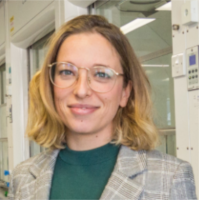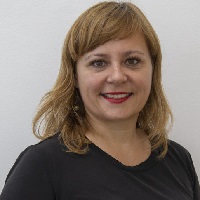Dr Nuria Tapia-Ruiz
Project Leader, WP 1.2 Leader, WP 1.1
My research interests focus on fundamental chemistry aspects of materials for energy storage, particularly for lithium-ion and sodium-ion battery technologies. By developing a profound understanding of the physical and chemical nature of the materials of study, specific material tailoring can be done to enhance the material electrochemical performance. We make wide use of diffraction and spectroscopic techniques to characterise our materials. This involves regular trips to central facilities outside Lancaster; e.g. Diamond synchrotron and ISIS neutron spallation source @ Oxford and ESRF @ Grenoble (France). The structural characterisation is done in parallel with battery testing, which is performed in state-of-the-art facilities in our brand new Chemistry Department. Our long-term mission is to fabricate a new generation of batteries which will outperform the existing ones to deliver higher energy density, cheaper, safer and longer-lasting.
Magda Titirici received her PhD in Materials Chemistry from the University of Dortmund in Germany. She then joined the Max-Planck Institute of Colloids and Interfaces as a Postdoctoral Fellow and later became a Group Leader, starting her independent research on sustainable carbon materials in 2006. Magda received her Habilitation in 2013 from the University of Potsdam/Max-Planck Institute. She then moved to the UK, to Queen Mary University of London as a Reader in Materials Science and in 2014 she was promoted to Full Professor. Magda moved to Imperial College London in January 2019 to take up a Chair in Sustainable Energy Materials.
Magda is the author of over 250 articles and has been included in the Global Highly Cited Researchers (Clarivate Analytics) over the past four years. She is the author of 13 book chapters and one book. She also holds 7 patents. Magda has received the Rosenhein Medal from IoM3, an Honorary Ph.D. from the University of Stockholm in 2017, the Chinese Academy of Science President Fellowship, the Royal Society of Chemistry Corday-Morgen prize in 2018 and a Royal Academy of Engineering Chair in Emerging Technologies fellowship in 2019.
Her current research interests involve sustainable materials with a focus on carbon and carbon hybrids produced via hydrothermal processes, waste recycling into advanced products, avoidance of critical elements in renewable energy technologies and the development of genuinely sustainable clean energy storage and conversion paths including alternative chemistries beyond Li, flexible and structural supercapacitors made from lignin/cellulose, carbon-based O2 electrocatalysis, CO2 capture and conversion and exploring the optoelectronic properties of nanocarbons. Her research is supported by the UKRI, EU, Royal Society, and Royal Society of Engineering and Industry.



